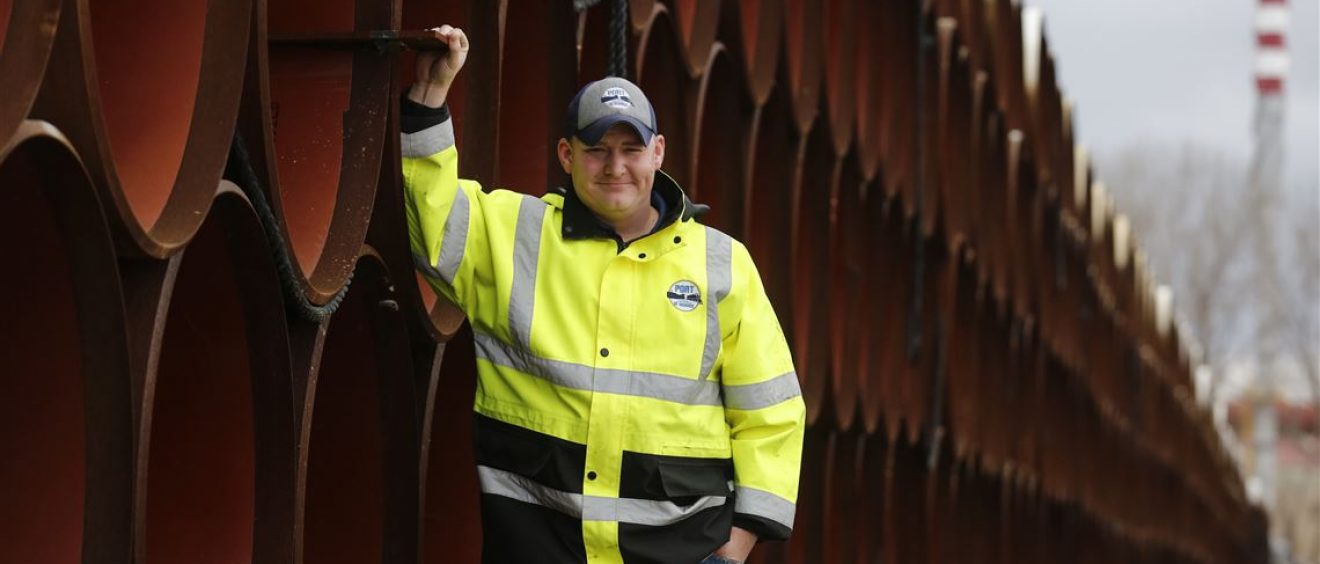
No good explanation for Michigan port policy
Source: Toledo Blade
DETROIT — Want an example of a major scandal that has been almost completely under the radar? The Detroit office of U.S. Customs and Border Protection has adopted a bizarre policy that is severely harming trade revenue in the state, and which has had devastating consequences for the Port of Monroe.
That policy is this: The vast majority of international cargo these days is shipped in large containers — and the Detroit office of the CBP is now requiring those metal shipping containers to be X-rayed and scanned for security reasons before they can go out or come in. But no port in the state has the equipment to do that, so the state is effectively shut out of most international trade. This is a policy, according to Paul LaMarre III, the head of the Port of Monroe, that is leveled only against Michigan.
“What to me is most clear is that this should be a non-political, non-partisan regulatory issue,” said Mr. LaMarre, who became leader of the Monroe port in 2012 after years as maritime affairs manager for the Toledo-Lucas County Port Authority. “And this is a clear abuse of regulatory authority.”
Mr. LaMarre, a 39-year-old former U.S. Navy pilot, has worked hard to expand the Port of Monroe, with considerable success. Last year, a University of Michigan study found that the number of jobs created by the port tripled under his stewardship, going from 577 to 1,659, meaning millions of dollars for the local economy. But then came the decision to forbid containers.
Voters line up to vote at Westminster Presbyterian Church in Grand Rapids, Mich.
Jack Lessenberry
Michigan faces election challenges with absentee votes
That was bad for all Michigan’s 40 ports, but worst of all for Monroe. Though less than an hour’s drive from Detroit, the port is technically outside Detroit’s jurisdiction, according to boundaries set by the Federal Register.
Because Monroe has no customs unit, Detroit has provided cargo inspection as a “courtesy if they have the manpower available.” For years, that wasn’t a problem. But now, whenever a key shipment of goods is about to exit or enter through Monroe, no manpower seems to be available.
“This has cost us [and the community] millions,” said Mr. LaMarre. What normally happens is that the cargo is either diverted to Toledo’s port, which is 14 miles from Monroe’s, or to Cleveland.
The authorities in charge of U.S. customs for Ohio, Illinois, and Wisconsin are based in Chicago — and have far more lenient rules than Michigan’s, which are the tightest in the nation. Christopher Perry, the CBP’s program manager in Detroit, sets the state’s customs rules. He is paid $166,218 a year. He has repeatedly refused media requests to explain his policy and has reportedly been vague about security needs.
No cargo has been halted from leaving or entering — it is just sent or received via different ports, hurting the state’s economy, and in some cases, adding costs to the consumer.
The University of Michigan conducted a major study on the effects of these policies last year, in which researchers looked at the impact of two glaring examples. In one case, Ford Motor Co. wanted to ship new Mustang cars from Monroe to Hamburg, Germany.
This would have meant revenues for the port and saved money for the automaker. But just weeks before the first 100 cars were to be shipped, Detroit customs officials told Ford that they could not guarantee that an agent would be there to inspect the containers. The project collapsed.
Another major project involved the shipment of huge amounts of equipment to the Port of Monroe that would be trucked to Grayling, where Arauco is erecting a factory. Initially the project was approved — but the Detroit office of the CBP announced it would deny entry just before the first ship arrived. The ship was diverted to Cleveland. Mr. LaMarre then got a barge and a tug and brought that shipment to Monroe, but the rest were canceled.
“They keep moving the target, but we are still developing new markets and doing our best to stay competitive,” he said.
The Detroit Customs and Border Patrol seems to be engaged in vindictive retaliation against one of the Monroe port’s biggest defenders, Gregg Ward, owner of the Detroit-Windsor truck ferry. Some months ago, the CBP sent teams with a slow mobile X-ray unit to his ferry, which takes trucks with hazardous material across the Detroit River daily.
“They are inspecting, with a slow mobile X-ray unit, 100 percent of our vehicles,” delaying transit and costing him business, Mr. Ward said. “It is pure harassment. At the Ambassador Bridge they X-ray no car traffic going to Canada and less than 10 percent of commercial vehicles entering the United States.”
Mr. LaMarre’s take: “They are trying to put him out of business. Gregg Ward is one of the finest and most honest men I know.”
What is clear is this: Monroe, and the state of Michigan, are losing millions of dollars because of a seemingly senseless and arbitrary customs rule that exists in no other state. And nobody in government has satisfactorily explained why.



